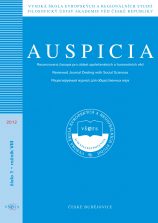Mzdová politika v kontextu nabídky práce v ČR
Wage Policy in Context of Labour Supply in the Czech Republic
Author(s): Romana PíchováSubject(s): Labor relations, Fiscal Politics / Budgeting, Socio-Economic Research, Labour and Social Security Law
Published by: Vysoká škola evropských a regionálních studií, z. ú.
Keywords: minimum wage; super-gross wage; tax rate; tax deduction; an individual’s living wage; labour supply;
Summary/Abstract: This paper discusses the wage policy. Specifically, it evaluates the influence of frequent changes in the wage policy on the labour market and its supply. It covers the development of determining the actual amount of net wages as the main source of income for an employee between 2002 and 2016 within. The main objective of this paper is to highlight the frequent changes in the wage policy and the subsequent evaluation of these changes’ impact on people’s decisions whether to participate in the work process. A partial objective is to compare the values of an individual’s living wage with the minimum wage as a further factor influencing the labour supply. The analysis proves that the frequent changes in the wage policy affect the labour supply to a minimum extent. This conclusion was also supported by a questionnaire survey, further pointing out that employees would prefer an increase in the standard tax deduction, worth CZK 3,170 (by 2005), than a next year (2017) planned increase in the child tax benefit for the second and third child, respectively.
Journal: Auspicia
- Issue Year: 2016
- Issue No: 2
- Page Range: 42-53
- Page Count: 12
- Language: Czech

